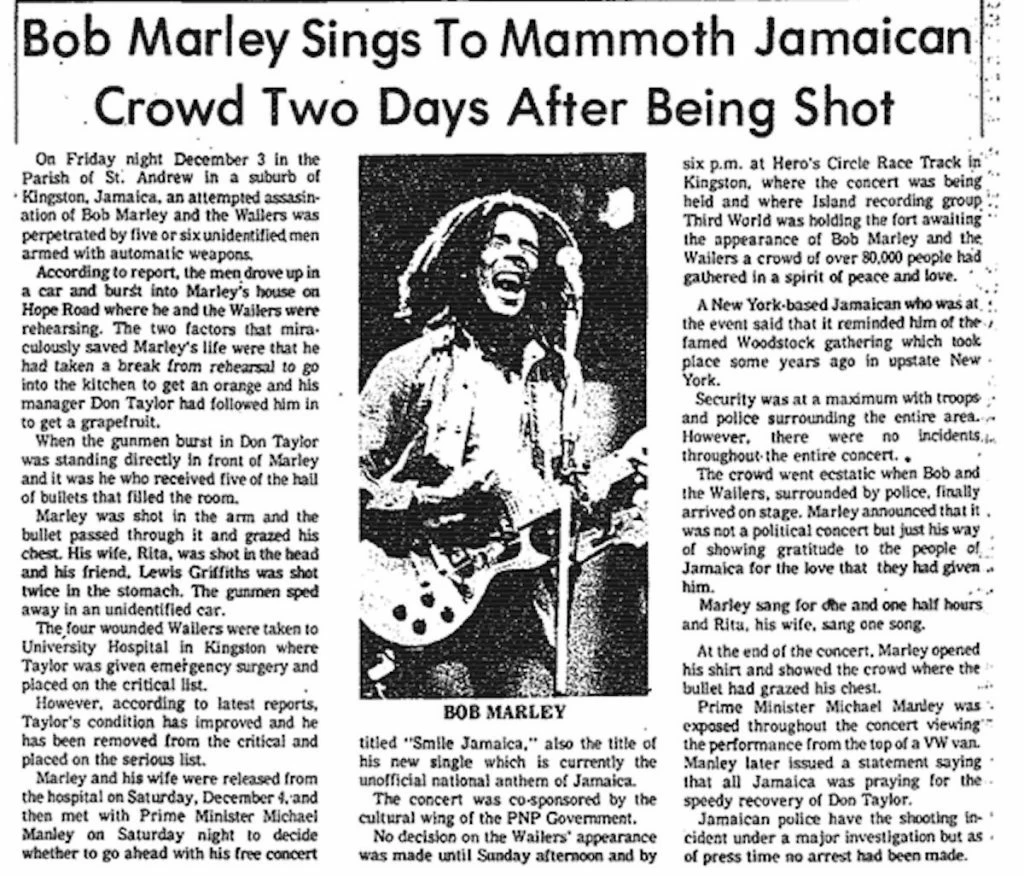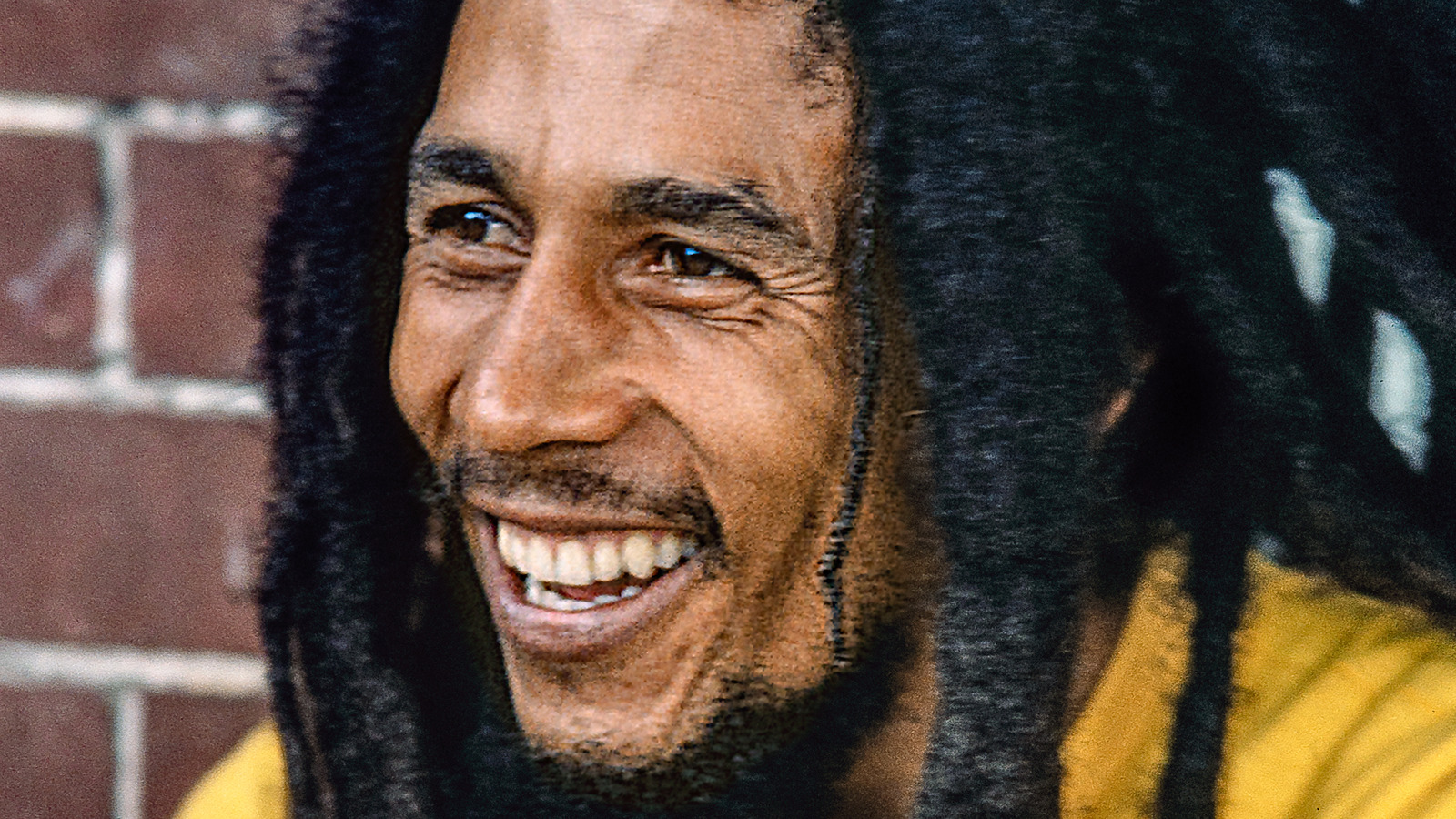Unveiling The Truth: How Bob Marley Death Shocked The World
Bob Marley death remains one of the most iconic and heart-wrenching moments in music history. His journey was a blend of rebellion, spirituality, and unyielding passion for reggae. The loss of this legendary figure left an indelible mark on fans worldwide. But how exactly did Bob Marley die? Let's dive into the details and uncover the truth behind his untimely passing.
Bob Marley wasn't just a musician; he was a symbol of resistance, love, and unity. His music transcended borders and connected people from all walks of life. When news of his death broke in 1981, it felt like the world lost a beacon of hope. Fans were left questioning what really happened and how such a vibrant soul could be taken away so soon.
As we explore the events leading up to Bob Marley's death, we'll uncover the medical circumstances, personal struggles, and the legacy he left behind. This isn't just about how he died but also about the impact his life and music had on generations to come.
Read also:Exploring The Influence Of Lays Peace Erome On Modern Society
Biography: The Life and Times of Bob Marley
Early Years and Rise to Fame
Bob Marley was born on February 6, 1945, in Nine Mile, Saint Ann Parish, Jamaica. His full name was Nesta Robert Marley, and his early life was marked by a blend of cultures and challenges. His father, Norval Sinclair Marley, was a white Jamaican of English descent, while his mother, Cedella Booker, was a Black Jamaican. This mixed heritage played a significant role in shaping his worldview and music.
By the late 1960s, Bob Marley had already begun making waves in the music scene with his band, The Wailers. Songs like "No Woman, No Cry" and "Stir It Up" brought reggae to global audiences, and Bob became the face of the genre. His lyrics spoke of love, redemption, and social justice, resonating with people around the world.
Here's a quick overview of Bob Marley's personal details:
| Full Name | Nesta Robert Marley |
|---|---|
| Date of Birth | February 6, 1945 |
| Place of Birth | Nine Mile, Saint Ann Parish, Jamaica |
| Profession | Singer, Songwriter, Guitarist |
| Genre | Reggae |
How Did Bob Marley Die? The Medical Story
The Cancer Diagnosis
Bob Marley's death was the result of a relentless battle with cancer, specifically melanoma. It all started in 1977 when he noticed a small wound on his toe that wouldn't heal. At first, it was thought to be a soccer injury, but tests revealed it was malignant melanoma, a type of skin cancer. Despite the diagnosis, Bob refused amputation, citing religious and personal beliefs tied to his Rastafarian faith.
The cancer eventually spread to other parts of his body, including his lungs and brain. By the early 1980s, the disease had progressed to a point where treatment options were limited. Bob sought alternative therapies in Germany, but time was running out.
Timeline of Events Leading to Bob Marley's Death
1977: The Initial Diagnosis
In 1977, doctors discovered the melanoma on Bob's toe. Instead of opting for surgery, he chose to treat it with herbal remedies. This decision, while controversial, was deeply rooted in his spiritual beliefs. Bob believed that his body was a temple and that amputation would disrupt his connection to the divine.
Read also:Discovering Linn Berggren A Rising Star In The Pop Music Scene
1979-1980: The Cancer Spreads
By 1979, the cancer had metastasized, affecting his lungs and other vital organs. Bob continued touring and recording music despite his deteriorating health. Songs like "Redemption Song" were written during this period, reflecting his inner struggles and unwavering faith.
The Final Days: Bob Marley's Passing
May 11, 1981: The World Says Goodbye
On May 11, 1981, Bob Marley passed away at the age of 36 in a hospital in Miami, Florida. The news sent shockwaves across the globe, leaving fans devastated. His funeral was attended by thousands, including the then-Prime Minister of Jamaica, Edward Seaga, who declared Bob a national hero.
Bob's last words to his son Ziggy were, "Money can't buy life." These words continue to resonate with fans and remind us of his deep understanding of life's fleeting nature.
Causes and Risk Factors of Melanoma
Understanding the Disease
Melanoma is a serious form of skin cancer that develops when pigment-producing cells, known as melanocytes, become cancerous. While it's often linked to sun exposure, Bob Marley's case was unique. His melanoma was acral lentiginous melanoma, a rare subtype that occurs in areas not typically exposed to sunlight, such as the palms, soles, and nail beds.
This subtype is more common in people of color, making Bob's diagnosis both tragic and significant. It highlights the importance of regular skin checks and early detection, regardless of race or ethnicity.
Bob Marley's Legacy: Music, Message, and Impact
Music That Lives On
Even though Bob Marley's life was cut short, his music continues to inspire millions. Tracks like "One Love," "Get Up, Stand Up," and "Three Little Birds" have become anthems of peace and resistance. His message of unity and love transcends time, making him a timeless icon.
- Bob's music has been covered by countless artists across genres.
- His influence can be seen in modern reggae and hip-hop artists.
- Bob's family, including Ziggy Marley and Damian Marley, have carried on his legacy.
Lessons from Bob Marley's Life and Death
Health Awareness and Faith
Bob Marley's story serves as a powerful reminder of the importance of health awareness. While his decision to refuse amputation was rooted in his faith, it also highlights the need for open conversations about medical treatments and personal beliefs. His life teaches us to embrace our values while also prioritizing our well-being.
Bob's unwavering faith and resilience in the face of adversity continue to inspire people worldwide. His music and message remind us to live authentically and fight for what we believe in.
Remembering Bob Marley: A Global Icon
Celebrating His Legacy
Bob Marley's death was a tragic loss, but his legacy lives on through his music and the countless lives he touched. Events like the annual Bob Marley Birthday Tribute in Jamaica celebrate his contributions to music and humanity. Fans from all corners of the globe gather to honor his memory and keep his spirit alive.
As we reflect on how Bob Marley death impacted the world, we're reminded of the power of art to transcend boundaries and bring people together. His music remains a testament to the strength of the human spirit and the enduring power of love.
Conclusion: The Legacy Lives On
Bob Marley death was a shock to the world, but his legacy continues to inspire millions. His music, message, and unwavering faith have left an indelible mark on generations. While the circumstances surrounding his passing were tragic, they also serve as a reminder of the importance of health awareness and embracing our values.
We invite you to share your thoughts and reflections on Bob Marley's life and music in the comments below. Let's keep the conversation alive and honor his memory by spreading love and positivity. And don't forget to check out our other articles for more insights into music, history, and culture.
Table of Contents
- Biography: The Life and Times of Bob Marley
- How Did Bob Marley Die? The Medical Story
- Timeline of Events Leading to Bob Marley's Death
- The Final Days: Bob Marley's Passing
- Causes and Risk Factors of Melanoma
- Bob Marley's Legacy: Music, Message, and Impact
- Lessons from Bob Marley's Life and Death
- Remembering Bob Marley: A Global Icon
- Conclusion: The Legacy Lives On
Bob Marley's story is one of triumph and tragedy, love and loss. His life and music remind us to cherish every moment and strive for a better world. As we celebrate his legacy, let's carry forward his message of unity and hope.


